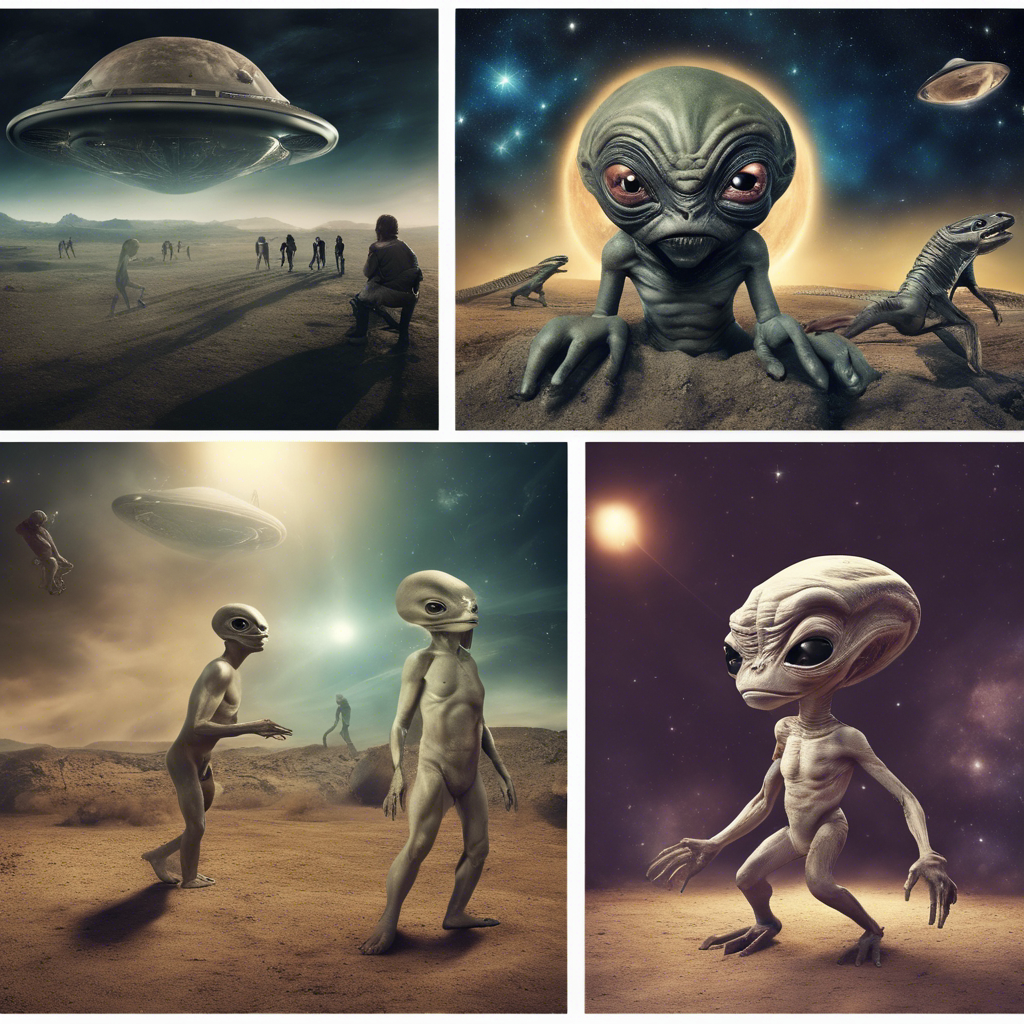The Evolution of Alien Encounters in Pop Culture

From Panic to Comedy: A Journey Through the Depiction of Extraterrestrial Invasion
Throughout history, humanity has been captivated by the idea of extraterrestrial life and the potential for an otherworldly invasion. From the panic-inducing radio broadcast of “The War of the Worlds” in 1938 to the adorable and empathic E.T. in 1982, the portrayal of alien encounters in popular culture has evolved significantly. This article explores the shifting attitudes towards extraterrestrial invasion, from fear and paranoia to open-mindedness and comedy.
The Era of Fear and Paranoia
During the McCarthy era in the 1950s, the fear of communism seeped into the portrayal of extraterrestrial invasion in movies like “Invasion of the Body Snatchers” and “I Married a Monster From Outer Space.” These films tapped into the prevailing paranoia of the time, depicting aliens as insidious beings infiltrating society and threatening the very fabric of humanity. The Cold War further fueled this narrative, culminating in the release of “Alien” in 1979, where a conscienceless creature sought to destroy humanity for its own survival.
The Rise of Open-Mindedness and Empathy
In 1982, Steven Spielberg’s “E.T. the Extra-Terrestrial” introduced a new perspective on alien encounters. The film depicted an adorable and empathic alien in need of human assistance, challenging the notion of extraterrestrials as solely malevolent beings. “E.T.” marked a turning point in how aliens were portrayed, emphasizing the potential for understanding and connection between humans and extraterrestrial life.
Science Fiction as a Catalyst for Open-Mindedness
Television shows like “Star Trek: The Next Generation” and “The X-Files” further contributed to the shift in attitudes towards extraterrestrial invasion. “Star Trek: The Next Generation,” which aired from 1987 to 1994, presented a future where humans and aliens coexisted in harmony, promoting open-mindedness and tolerance. “The X-Files,” which first ran from 1993 to 2002, delved into the mysteries of alien encounters, blending science fiction with elements of horror and conspiracy. These shows encouraged viewers to question preconceived notions about extraterrestrial life and consider the possibility of peaceful coexistence.
Comedy as a Dismissal of Alien Exceptionalism
As the portrayal of aliens became less fearful and more empathetic, comedy began to play a significant role in depicting extraterrestrial invasion. Sitcoms like “3rd Rock From the Sun” (1996-2001) and “The Neighbors” (2012-14) treated aliens as comedic characters, exploring their struggles to adapt to Earth’s customs and norms. By presenting aliens as fish out of water, these shows challenged the notion of alien exceptionalism and highlighted the absurdity of perceiving extraterrestrials as inherently threatening.
Conclusion:
The portrayal of extraterrestrial invasion in popular culture has undergone a remarkable transformation over the years. From the era of fear and paranoia to the rise of open-mindedness and empathy, and finally, the dismissal of alien exceptionalism through comedy, our perception of aliens has evolved. These shifts reflect broader societal attitudes and the changing dynamics of our world. As we continue to explore the possibility of extraterrestrial life, it is crucial to approach the subject with an open mind, embracing the potential for understanding and connection rather than succumbing to fear and prejudice.

